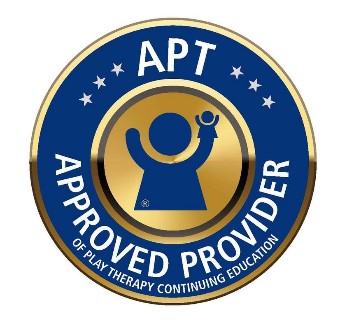Adventures in the Play Room: Using Active Games and Challenge Activities in Play Therapy
A day spent playing and learning adventure therapy techniques for working with your play therapy clients—what could possibly be more fun??
Description
In this experiential workshop, you will learn how to use active games and adventure/challenge activities for exploring clients’ feelings, attitudes, and patterns of behavior in play therapy. We will practice using these techniques for helping play therapy clients build trust, share control, increase cooperation, handle problem situations, and enhance their relationships with others. We will also explore sequencing, processing, developing metaphors, and assessing play therapy clients using these fun and powerful techniques. You will go home with new activities you can use in your play therapy practice with children, adolescents, and adults; with groups, families, and individual clients. Wear comfortable clothes and come prepared to play!
 8 Contact CE hours (4 hours on Play Therapy Skills and Methods, and 4 hours on Play Therapy Special Topics)
8 Contact CE hours (4 hours on Play Therapy Skills and Methods, and 4 hours on Play Therapy Special Topics)
APT Approved Provider 99-055

League of Extraordinary Adlerian Play Therapists (LEAPT) has been approved by NBCC as an Approved Continuing Education Provider, ACEP No. 7402. Programs that do not qualify for NBCC credit are clearly identified. League of Extraordinary Adlerian Play Therapists (LEAPT) is solely responsible for all aspects of the programs.
Objectives
At the end of this workshop, participants will be able to:
- Explain how they can use active games and adventure/challenge activities in their play therapy practice.
- Describe 3 activities they can use in play therapy to help clients learn to share control and increase cooperation.
- Describe 2 activities they can use in play therapy to build trust with clients.
- Describe 3 activities they can use in play therapy to enhance clients’ problem solving and relationship building skills.
- Assess clients’ Crucial Cs and personality priorities using adventure therapy techniques in play therapy.
- Explain the parallels between the 4 phases of Adlerian play therapy and the 4 types of active games that comprise adventure therapy.
- Explain how to adapt adventure therapy techniques for individual, family, and group play therapy clients.
- Describe the importance of sequencing when using adventure therapy techniques in play therapy.
- List 3 different ways to process adventure therapy activities in play therapy.
Agenda
8:00 am - Start
10:00 am - Break #1 (15 minutes)
12:00 - 1:00 pm Lunch (1 hour)
2:30 pm - Break #2 (15 minutes)
5:30 pm - End